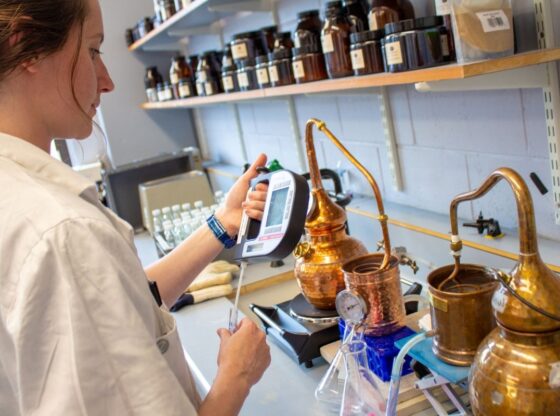
By Hendre’ Barnard, Training and Marketing Manager
Distillique Beverage (Pty) Ltd.
https://distillique.co.za
Click <Here> to see more of Hendre’s articles.
As explained in our Article about successful fermentations, Nutrients play a very important in Yeast propagation and fermentation. Among these nutrients there are two main categories, namely Macro and Micro Nutrients
What are Yeast Macro Nutrients?
The first, Macro nutrients, are those that are required in large concentrations, and they include magnesium sulphate, di-ammonium phosphate (DAP), thiamine, hydro-chloride, calcium pantothenate, folic acid, niacin, ammonium sulphate, pantothenic acid, tartrate and bentonite. But the most important Macro nutrients are Vitamin B and Nitrogen.
What are Yeast Micro Nutrients?
In the Micro nutrient group we find trace vitamins and minerals like phosphorus, amino acids, citric acid, biotin, etc. but most of these are found naturally in either the raw materials used, or in the water added to the fermentation (at least in these small concentrations required).
Can I improvise Yeast Nutrients?
Although most Brewing and Distilling shops sells Yeast Nutrient mixes, and these are the best and most convenient to use, you can improvise your own nutrients.
Common lawn fertilizer for instance, can be used to add Nitrogen and Phosphates to your fermentation (about 4 or 5 granules per 5 lt fermentation). Alternative sources for Vitamin B includes Vitamin B supplement tables (not capsules) from your local pharmacy – a quarter tablet on a 5 lt fermentation – a teaspoon of Marmite (a yeast extract) on 5 lt, or Tomato Paste (one small can of concentrate on 20 litres of fermentation).
Also, keep your Yeast Sediment at the bottom of the fermentation vessel, through it on a baking tray and dry it in the sun. Yeast is cannibalistic and eats its dead.
All grain fermentations do not normally need additional nutrients as the grain contains Nitrogen, Vitamin B and Mineral Salts.
Raisins are not a suitable Nutrient substitute.
Although many people use raisins, and raisins do have trace amounts of Vitamin B and Amino Acids, it is nowhere near enough (and the Amino Acid in Raisins are Proline which is not utilized by Yeast), and raisins contain very little YAN (Yeast Assimilable Nitrogen). Not going to run you through the entire calculation, but to be of any Nutrient use, you would need to add kilograms of Raisins (quick calculation – 50 raisins in 4lt fermentation adds 34mg of nutrients per litre, which is less than 10% of what the yeast requires. This means you would need to add about 500g of Raisins per 4lt fermentation to get usable nutrients.
How do I make my own Yeast Nutrients?
A Yeast Nutrient mix is the best to use as it removes variables – you know what the dosage is every time, you know what will happen, and there is no flavour impact.
Should you want to make your own batch of yeast nutrients; the following recipe will provide you with a relatively potent mixture:
- 40g of Di-Ammonium Phosphate
- 747g of Ammonium Sulphate
- 2g of Thiamine
- 1g of Potassium Tartrate
- 10g of Bentonite
The result will be a mixture of approximately 800g of Nutrients, of which you only need to add 3 to 5 grams per 20 lt fermentation.
Be careful of adding too much nutrients, especially Nitrogen, as residual Nitrogen can turn into Ammonia during distillation, stripping Copper from the inside of the Still, which can cause Blue Distillate. This might look cool, but is dangerous.


